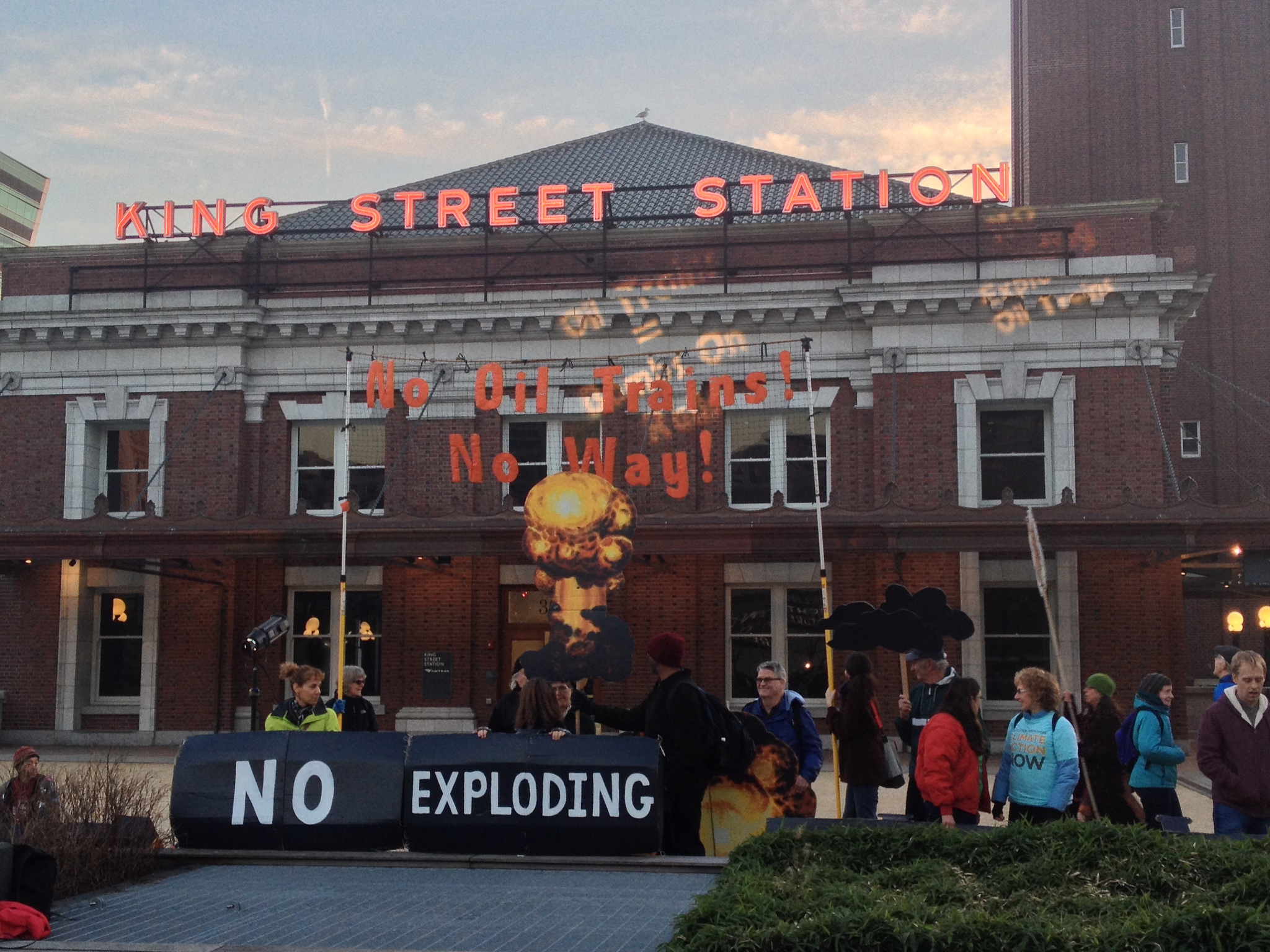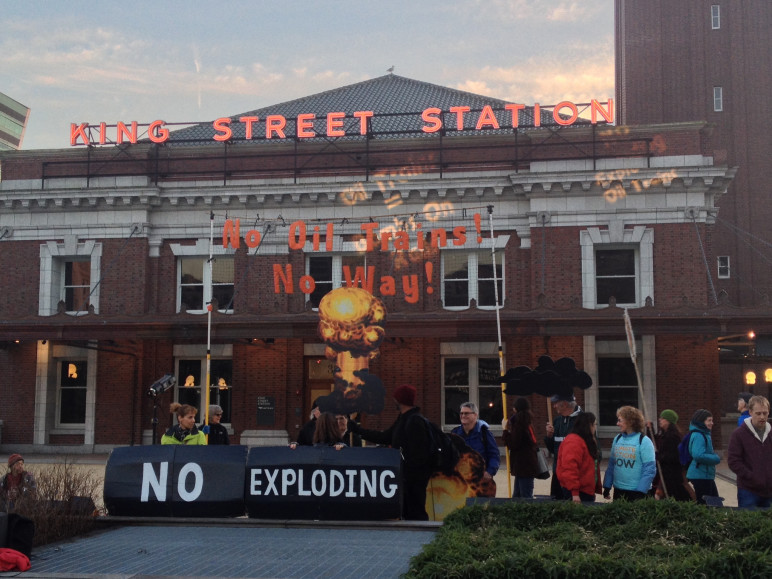We need to oppose these projects because it’s a way for us to chart a new course away from fossil fuels. -Eric de Place
Want to catch up with the latest Thin Green Line news but don’t have time to sit down and read our recent articles? Don’t fret! You can listen on the go.
Sightline policy director Eric de Place and research fellow Nick Abraham gave an update on the Thin Green Line on KBOO radio, a community radio station based in Portland. Together, they discuss the victories and challenges that Northwest communities face while resisting fossil fuel development. Listen in.
- At 1:45, Nick examines the demise of the Jordan Cove LNG project in Coos Bay, Oregon
- Nick: “The communities that have come up against [the LNG project] in Southern Oregon, along the pipeline route and in the city, have shown unprecedented organization and are really making their voice heard. I think it has probably caught the company off guard and FERC off guard as well. They haven’t seen this type of outcry.” (7:25)
- 9:30: Eric talks about the two proposed Longview fossil fuel projects: the oil refinery and propane-by-rail facility
- Eric also explains the unanimous decision to deny the permit for the proposed Longview oil refinery (19:15)
- “We need to oppose these project because it’s a way for us to chart a new course away from fossil fuels.” -Eric de Place (20:00)
- At 23:25, Eric and Nick speak on the impacts of the proposed methanol projects in the Northwest
- 31:12: Eric explains the idea behind the “Thin Green Line” phrase
- Eric: “If the fossil fuel industry cannot get infrastructure between Coos Bay, Oregon, and Prince Rupert, BC, then [fossil fuels] will stay in the ground.” (31:47)
- 32:52, “There is not one single [fossil fuel] project that has faced an opposition movement that has been able to proceed so far.” -Eric de Place
- Eric: “No matter how big and ferocious these projects look, there is no reason to believe that they can’t be beaten. History is showing that they all can be beaten.” (33:00)












Craig
The best way to cut these projects is to reduce demand where they become albatrosses. Yet who talks about reducing demand, personally or collectively? Personally I try to burn no more than 20 gallons of gas and about 600 KW a month. What are others experience?